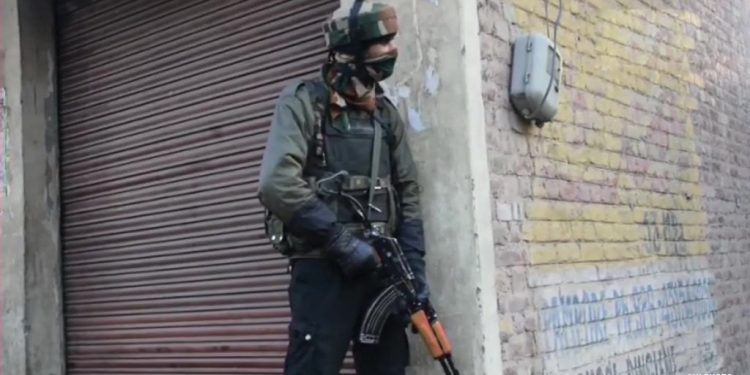Kashmir saw more upsets and bloodletting Monday, 18 February. An army Major was among four soldiers killed in another encounter with a small gang of terrorists holed up in Pinglan, some 10km from the scene of the February 14 suicide bomb attack on a CRPF convoy. Three terrorists were also killed; one of them suspected or claimed to be the mastermind behind the deadly Pulwama attack last week. Violence and encounters of this kind in Kashmir are part of a running script. What cannot escape attention is also the fact that in several such exchanges of fire, more of security forces have died than the terrorists, who are always small in number. So with Pinglan, too. This is a matter of serious concern and it’s important that the security forces devise more sophisticated ways of targeting the terrorists in the firing mode in the Valley. This also shows that India is losing its valuable young jawans on a daily basis. If one adds monthly data, the figures may reach a hundred plus. These are unpardonable losses of very precious lives and the prime reasons could be improper training of the soldiers and a complete failure of the command structure. It may also be that our soldiers have been too strained and are under tremendous pressure for which performance levels have dipped drastically.
The loss of lives could also be because the security forces could be attempting to capture at least one or two terrorists alive – a reason why no attempt is ever made to set the hideouts on fire or bomb them. It’s mostly impossible to catch such terrorists alive from their hideouts. They come not only with high-end training but are also highly motivated to kill themselves if there arose a chance of being caught. This is for the reason that once caught alive, they would face likely torture; and chances are also that investigating agencies would extract incriminating information from them, like the mode of operations of their trainers, handlers and location of training camps.
One of the rare instances of capture of a terrorist was of Ajmal Kasab who participated in the 2008 Mumbai terror attacks. However, it helped India little. Rather, huge sums were spent on his safe-keeping and trial in Mumbai for four years. Whatever information investigation agencies extracted from him and posed before the Pakistani authorities – about his training on their soil – was simply rejected as fiction. Overall, Kasab proved to be a burden on India, in terms of money spent on him, rather than being of much use.
Ideally, catching a terrorist alive is the best option. At the same time, encounters like the one in Pinglan Monday led only to heavy losses for Indian security forces – including a Major and other soldiers. Similar situations arose in the Pathankot airbase in January 2016 and the Uri military base attack in September, the same year. While four terrorists were killed in Pathankot, seven security personnel were killed and over 25 more injured seriously by the terrorists. In Uri, 19 soldiers were killed – against extermination of four terrorists.
The terrorists seem to plan their attacks meticulously and are definitely getting more determined. India, on the face of it, does not have a similar, lethal mechanism to target the terror outfits. The funny aspect is that it is no more easy to blame Pakistan for all security debacles occurring well within Indian territory. Coming to grips with reality, it is noticed that Pakistan Army, too, has been under terrorist attack and has lost uniformed men this past weekend.
It is time to maintain more alert as more terrorist strikes could take place in the run-up to the Polls 2019, as some intelligence reports indicate. Jaish chief Masood Azhar is said to be seriously incapacitated and under treatment for some ailment in a Pakistan hospital. His close chum, Dawood Ibrahim, too, is in a similar plight. This by itself can be no comfort to India. In the case of Pulwama, there was serious intelligence failure as former RAW chief Vikram Sood has noted. But, the zeroing in on Pinglan demonstrates that the intelligence agencies are operating on a ‘by chance’ mode, not on sure footing. And this could primarily be because common citizens of Kashmir have lost faith on the Indian system of governance.






































